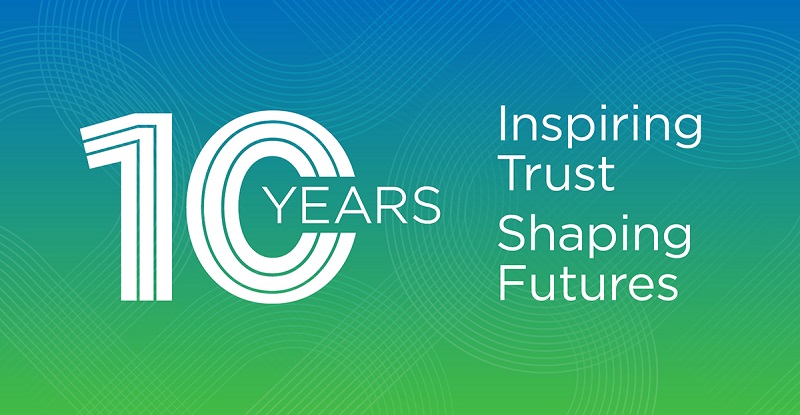
Listen to our podcast episode with Kevin Burkett, CPA, CA, partner at Burkett & Co. in Victoria, BC. Part of our Coffee Chats with CPABC podcast series.
Increasingly, CPAs are being looked to for advice that goes beyond tax and accounting matters. This shouldn’t be a surprise for anyone, as CPAs are financial experts who can bring objective data-driven advice to their clients that helps them not only understand tax-related matters, but also helps clients enhance their business growth and prospects, as well as wealth generation.
To better understand how CPAs can play this critical role, we spoke with Burkett & Co.’s partner, Kevin Burkett, CPA, CA, on his experience.
COVID-19 has increased discussion and questions around wealth management. As a public practitioner who works closely with your clients, what are the most common questions you get when it comes to investments
Kevin: The subject of wealth management comes up a lot. It can be event-driven, so think inheritance, sale of a business, but it can also be situational. Maybe there is unhappiness or uncertainty with advice they're getting elsewhere. The most common questions from clients are often tax-related, such as “Are my investments tax-optimized?” or “Do I have my savings in the right place?”
Sometimes questions are performance-related. Because you see their investment account statements, your clients may ask “How am I doing?” in relation to a year-end for a holding company or a personal tax return. Clients respect our opinion on financial matters, so often they'll use us as a sounding board. They might wonder how they're doing relative to other clients. They might wonder how best to evaluate their investment advisor or portfolio manager.
They may also come to us with questions such as, “Should I help my child buy a house?” or “Should I give money I was going to leave in my will during my lifetime?” or “How can I do something philanthropic?”
The financial knowledge that CPAs bring is very valuable to clients. How can CPAs add value in terms of helping their clients generate wealth through their investments?
Kevin: A transition is happening where the compliance or service-driven elements of our practice are becoming less of a focus and the advice-driven aspects of our practice are becoming more important. This is largely due to digitization, which has allowed us to become very efficient at processing and coordinating the tax-filing part of our business. This, in turn, has allowed us to shift our business focus to advisory services.
CPAs have an important role to play when advising clients, especially where they can offer the benefit of an outside perspective. And the good news is most of the skills and experience required to be useful to clients are things CPAs already have. And what we can offer to our clients is that since we are professionals, our advice about their financial situation is objective, which adds considerable value.
With the opportunity to shift focus to becoming a partner that clients can rely on to help them grow their wealth or business, comes the need to work more closely with other professionals who also advise your clients such as lawyers and financial planners. What advice do you have for CPAs on working alongside other client service providers?
Kevin: Developing a professional network of advisors in different service areas is really helpful, particularly in areas that are separate from what CPAs offer such as legal advice. Ultimately, it's about the best outcome for the client. Creating trusted relationships with professionals with different expertise allows a CPA to connect clients to the diverse services they may need to expand their business or augment their investment strategies.
In most cases clients are looking to us as the overall responsible party – as their quarterback. So when you are in that overall coordinating or planning role, you need to make sure you identify and work well with the right subject matter experts, so you can source specialized expertise for your clients.
What are some things CPAs should consider with respect to legal and compliance aspects of providing wealth management services?
Kevin: It is important to be aware of your professional obligations as a CPA. When uncertain, Practitioners with specific questions and facts need to consult external legal advice with expertise in this area. This might mean that we need to call upon individuals with expertise in securities law, the CPA bylaws, and our code of professional conduct. Many of these the rules, too, are continually changing and evolving so my thoughts here are current but subject to change.
There are many rules that you should remember when working with other service providers to address client’s wealth management needs. One I would be particularly mindful of is independence. You cannot provide advice that will compromise independence in the context of assurance engagements. If you have a review or audit engagement in place, you're much more limited in the type of advice that you should be giving, if at all.
From a securities law perspective, accountants should not provide investment advice. Understanding what types of advice are within an appropriate scope is important. Do not comment on asset allocation or attempt to make stock recommendations, these are heavily regulated areas of practice and you must maintain appropriate registrations to do so. It is entirely appropriate to scrutinize an investment manager but avoid disrupting well-functioning relationships. Instead, consider arming clients with good questions, for example: “have you ever asked your investment advisor if there are less expensive options available.”
As a last point, an area to be careful of is in arrangements that involve referral fees or commissions. This is not a part of my practice and I have never participated in these but am aware they’re out there, particularly in the context of insurance. The challenge is that when money exchanged between someone other than you and your client you’ve got potentially unreconcilable conflicts that arise in providing advice. This risks undermining our credibility as trusted advisor and I think clients rightly scrutinize advisors that participate in those types of arrangements.
What can CPAs interested in providing wealth management advice do to learn more?
Kevin: A variety of resources are available. Consider seeking out and identifying good managers to work with. Portfolio Management Association of Canada includes managers that are registered as Investment Counsel firms. This category of registration requires in many provinces a fiduciary standard of care (legal best interest) and in my own research was the closest thing I could find to how accountants work with their clients.
Of course, the simple act of taking the time with clients of all sizes to understand their broader financial situation can help identify issues, so as to put forward recommendations they find useful.
Learn more about how CPAs can be a trusted partner to their clients by listening to our podcast episode with Kevin.
Aaron Aerts is an economist for CPABC. Visit our Public Practice Knowledge Base for the latest articles, tools, and resources for public practitioners.



